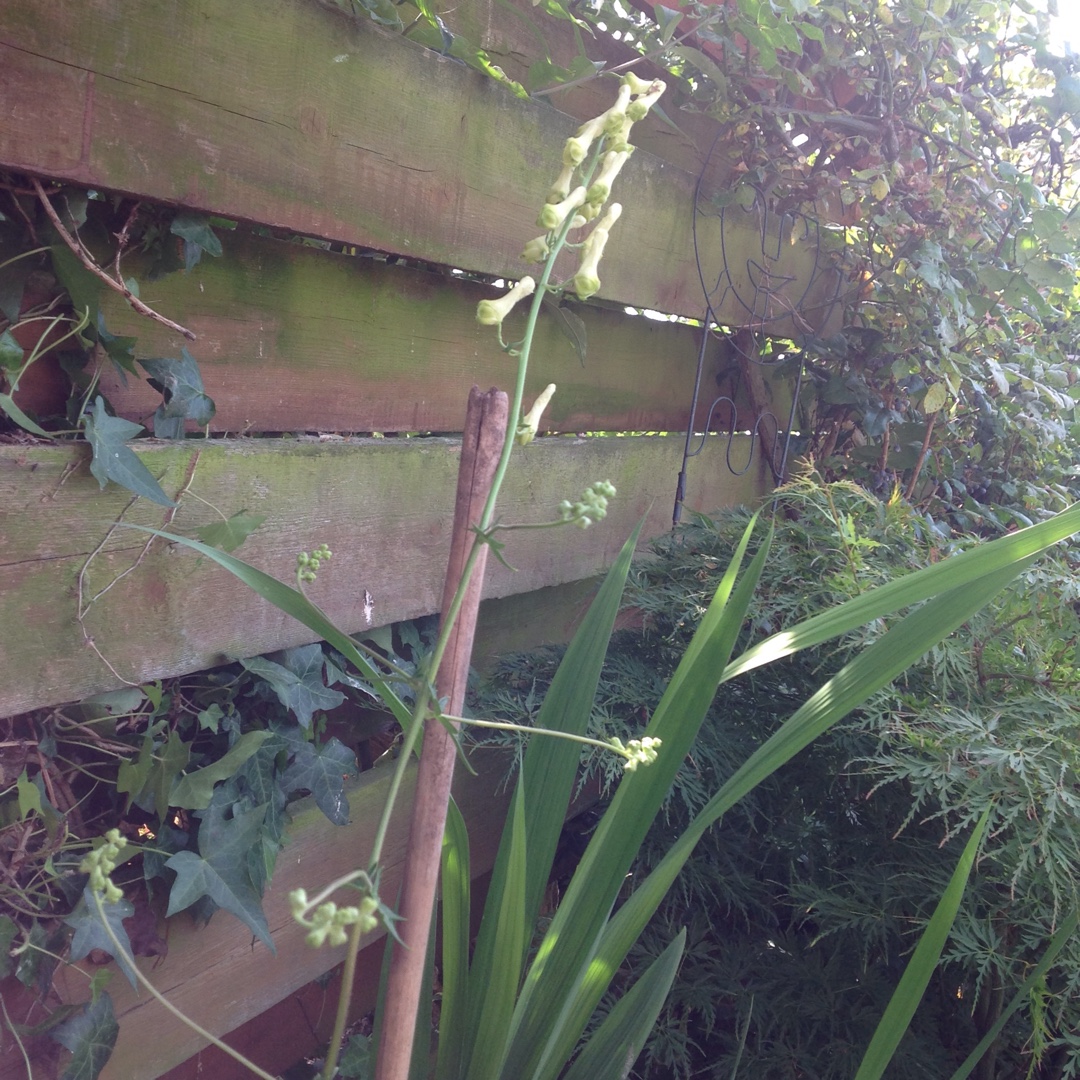
Aconitum lycoctonum var. vulgaria syn. Aconitum altissimum, Aconitum lasianthum
Foxbane
Aconites are perennials or biennials that bear spires of hooded flowers, similar to larkspur or delphinium. The leaves are lobed. WARNING: The plant is poisonous, and should be handled with care. Wear gloves, and clean tools after handling the plants. 'Vulgaria' has dark green glossy leaves and produces many spikes of very pale yellow flowers throughout the summer. Prefers cool moist fertile soil in partial shade, but will tolerate most soils and full sun.
Contributed by @Greenadvice
-
Full sun to partial shade
-
Occasional watering
-
Full Frost Hardy: 5F (-15°C)
-
Rich and free draining
Common name
Foxbane
Latin name
Aconitum lycoctonum var. vulgaria syn. Aconitum altissimum, Aconitum lasianthum
type
Herbaceous Perennial
family
Ranunculaceae
ph
5.0 - 8.0 Acid - Neutral
Plant & bloom calendar
-
Best time to plant
-
When the plant will bloom
full grown dimensions
 0.40 M
1.20 M
0.40 M
1.20 M
Aconitum lycoctonum var. vulgaria syn. Aconitum altissimum, Aconitum lasianthum
Aconites are perennials or biennials that bear spires of hooded flowers, similar to larkspur or delphinium. The leaves are lobed. WARNING: The plant is poisonous, and should be handled with care. Wear gloves, and clean tools after handling the plants. 'Vulgaria' has dark green glossy leaves and produces many spikes of very pale yellow flowers throughout the summer. Prefers cool moist fertile soil in partial shade, but will tolerate most soils and full sun.
Flowering
From Mid Summer TO Early Autumn
Tall spires of hooded blue flowers appear from mid Summer into Autumn
Planting
From Early Spring TO Mid Spring
Plant into rich and free-draining soil in a sunny or partially shady site. If the climate is hot the plant will need to be placed where there is shade from the mid-day sun.
Propagating by division
From Mid Autumn TO Late Autumn
Divide the rhizomes in Autumn. After approximately three years, once herbaceous perennial varieties have become established clumps they should be divided in order to retain vigour. The simplest method is to carefully dig around the clump and gently pull it apart into fist sized pieces and re-plant immediately. The middle of the original clump should be discarded as this will have lost vigour and become woody.








